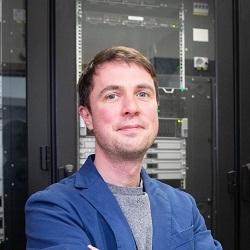Head of Bioinformatics, Gurdon Institute
The Gurdon Institute Bioinformatics group collaborates with scientists across the Institute to enhance research into developmental biology and cancer. We advise on experimental design, develop pipelines for data processing (with Nextflow, Python and R) and analyse data to generate novel biological findings.
The Institute has its own compute cluster, Illumina NovaSeq 6000 sequencer and 10X chromium single-cell platform, as well as access to wider University of Cambridge resources. Sequencing-based technologies such as whole genome sequencing, scRNA-seq, ATAC-seq, ChIP-seq and Hi-C are widely used at the Gurdon Institute and are the focus of much of our work. We provide supervision and training to staff in a variety of areas of bioinformatics.

